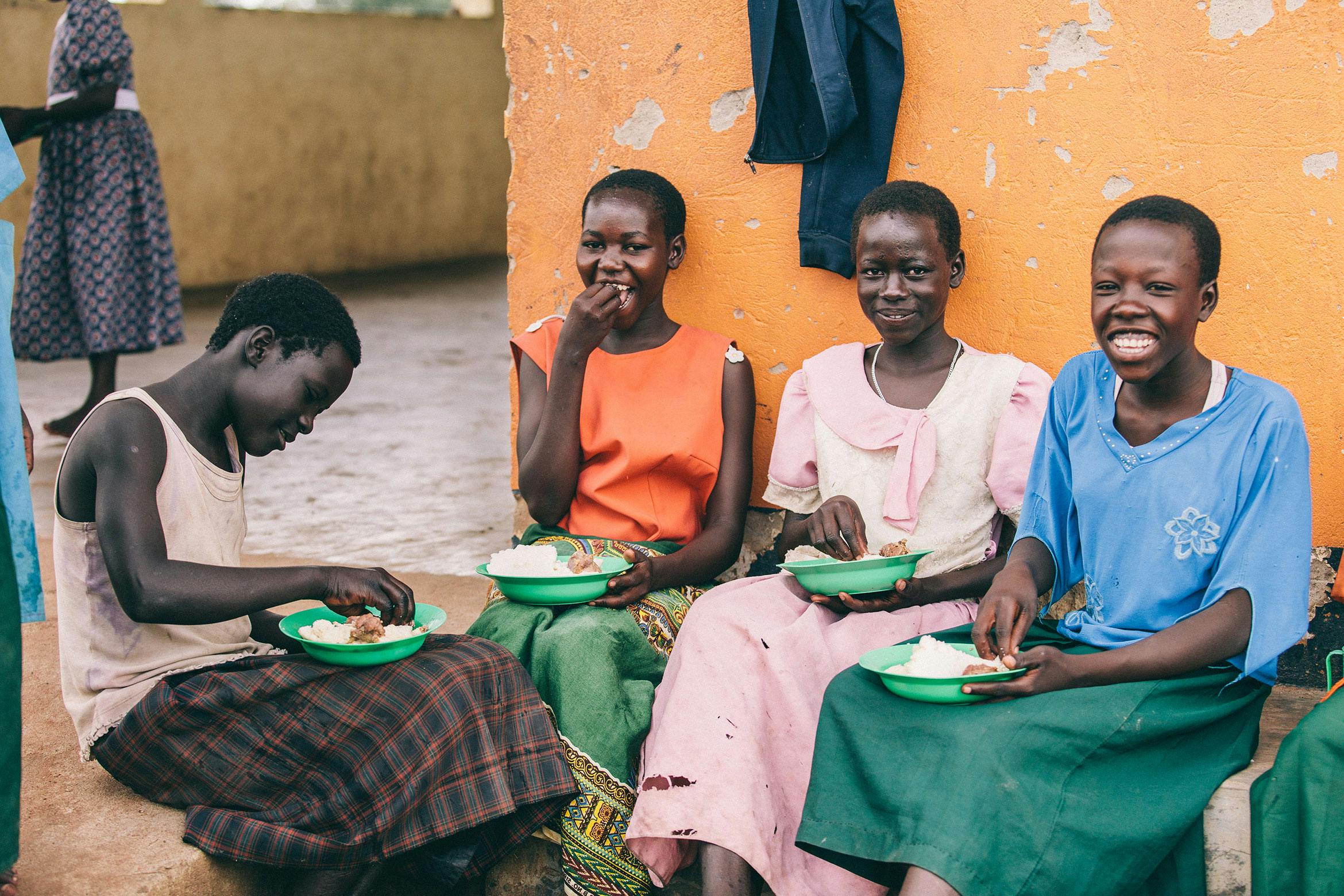

2. Zero hunger
After a prolonged decline, world hunger appears to be on the rise again. Conflict, drought and disasters linked to climate change are among the key factors causing this reversal in progress. It is time to rethink how we grow, share and consume our food. If done right, agriculture, forestry and fisheries can provide nutritious food for all and generate decent incomes, while supporting people-centred rural development and protecting the environment.
Read our stories to learn more about SDG Goal 2: Zero hunger
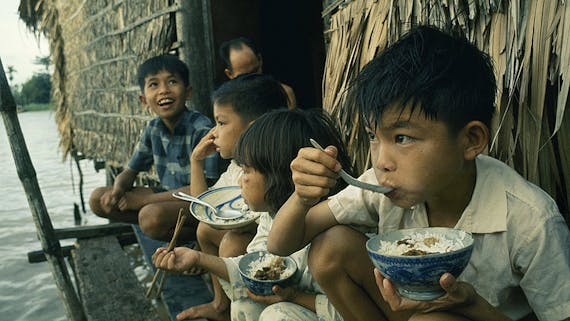
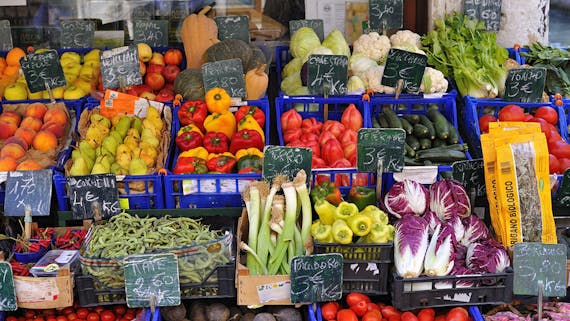
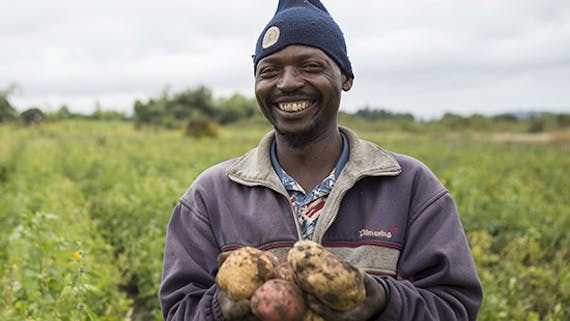
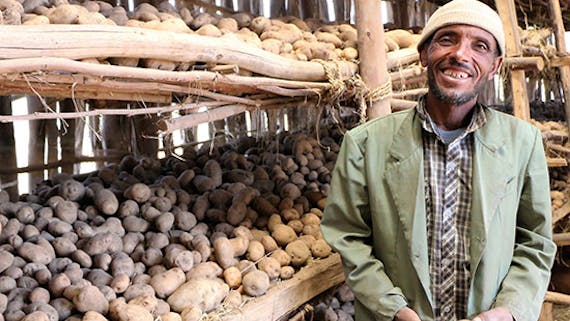
To adopt SDG 2 Zero hunger, in support of the 17 Sustainable Development Goals, please contact us at partners@eco-business.com
Adopt this goalNews

Food & Agriculture
Mapped: 16 times extreme weather drove higher food prices since 2022
UK potatoes, South Korean cabbage and west African cocoa are just some of the foods that became markedly more expensive after extreme weather events in recent years, according to new research.

Food & Agriculture
Pakistani fishers feel the impact of Iran-Israel war
In the southwest, a vital trade in fish and fuel has been paralysed by the shuttered border with Iran.

The former UNDP administrator warns that the world is facing a moment of profound disruption and calls for renewed investment into multilateralism and development as he reflects on his eight-year tenure.

Carbon & Climate
Droughts emerging as silent global catastrophe: report
A new report documents some of the most widespread and damaging droughts in recorded history, between 2023 and 2025, affecting millions across Africa, the Mediterranean, Latin America and Southeast Asia.
Food & Agriculture
India's biofuel drive pecks at chicken farmer profits
Policy & Finance
Homes smashed, help slashed: No respite for returning Syrians
Opinion

Policy & Finance
India’s digital divide and the consequent welfare bias
Digitalisation of government services is creating inequalities in the delivery of schemes to the marginalised.

Food & Agriculture
Why Donald Trump’s trade tariffs are a threat to global food security
Donald Trump’s tariffs risk driving up global food and fertiliser prices, deepening food insecurity in developing countries already struggling with poverty, climate shocks and market volatility.

Southeast Asia could use this disruption in food trade to strengthen collaboration, reduce dependency and create a truly integrated regional market.

Policy & Finance
Philanthropy in an era of declining development aid
Some want philanthropy to fill the gap, and others have shamed governments for stepping back. The former is unrealistic, while the latter ineffective. But even with constrained budgets, governments can provide assistance to scale up proven solutions.
Food & Agriculture
Reconciling Indonesia’s food sufficiency ambitions with climate commitments
Food & Agriculture
Synergising digital tech and climate tech to enhance Asean climate action
Videos

Food & Agriculture
Singaporeans love food, but are they valuing food enough?
EB Studio
Singaporeans are well-known foodies, but around 800,000 tonnes of food is wasted every year. Why is so much food wasted, and what can consumers do about it?

Food & Agriculture
Can palm oil plantations be elephant-friendly?
From conflict to co-existence: Earthworm Foundation has come up with a solution to managing human-elephant conflict in palm oil plantations in Sabah.

Food & Agriculture
Mission Impossible: Satisfying Asia’s meat appetite with plant-based food?
Can Impossible Foods, the plant-based food tech company from California, take a bite out of Asia's growing appetite for meat? Eco-Business spoke to founder Pat Brown to find out.

Food & Agriculture
Expansion of oil palm plantations into forests appears to be changing local diets in Indonesia
With no forests, people lose access to wild food and are forced to purchase more unhealthy food, including packaged foods.
Podcasts

Food & Agriculture
Looking past the label: the nutritionists’ guide to plant-based milk
EB Studio
Plant-based milks have grown in popularity in recent years, driven by a combination of health, environmental and practical concerns. Nutritionists on the Eco-Business podcast, produced in association with Kerry, weigh the pros and cons of non-dairy milk.

Food & Agriculture
Plant-based protein – fad or the future?
EB Studio
The booming alternative protein sector has experienced turbulence this year. The Eco-Business Podcast asks if growth in plant-based meat alternatives can go the distance.

Carbon & Climate
Relentless work, for no money: Southeast Asian climate scientists share their IPCC experience
What's it like co-writing a 3,500 page report on the dangers of climate change with hundreds of scientists worldwide, over Zoom calls during a pandemic? Eco-Business speaks to authors from the Philippines, Malaysia and Singapore who were in the thick of the action.

Carbon & Climate
Protecting 30 per cent of the ocean by 2030: Mission impossible?
EB Studio
Eco-Business talks to 'Aulani Wilhelm of Conservation International about why a plan to protect the ocean is critical, and why it might just work.

















